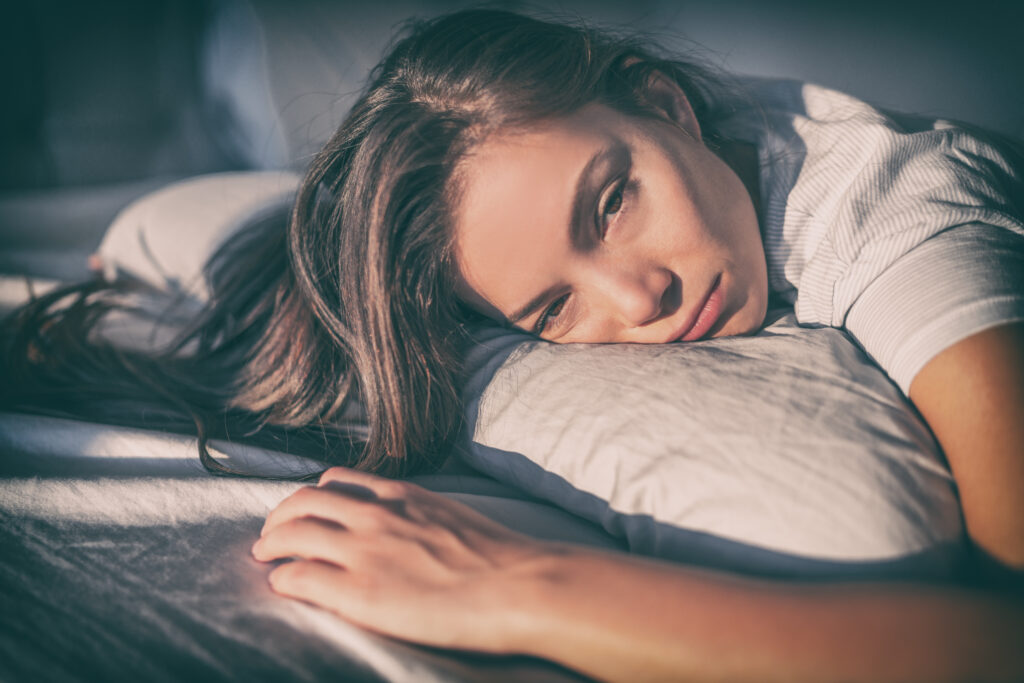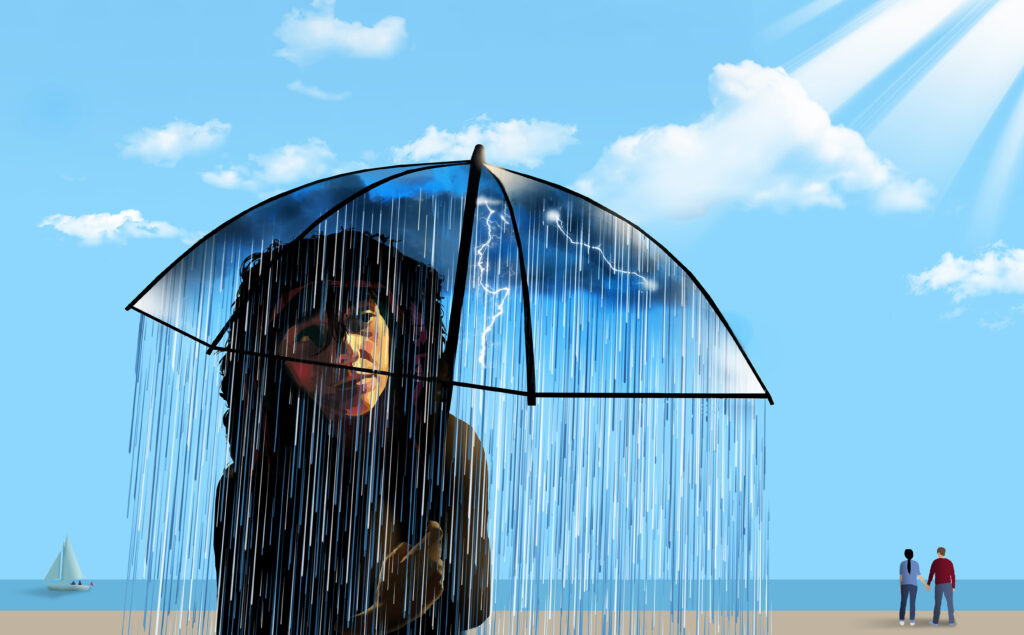
Those looking for psychiatric services in Delray Beach will likely be interested in a practice capable of treating many different kinds of mental health disorders, ranging from Post-Traumatic Stress to disorders related to Depression. Frequently, one mood disorder will spark another in a snowballing effect of mental health problems, as is frequently the case with Generalized Anxiety Disorder and Major Depressive Disorder.
There are many different types of Depression, each with its own set of symptoms. In this article, we will discuss the different kinds of Depression and their causes. We will also talk about the treatments available for Depression and how you can get help if you are struggling with this condition.
What Is Depression?
Depression (also referred to as Major Depressive Disorder) is a mood disorder that can affect anyone at any time. It causes feelings of sadness, emptiness, and hopelessness that can last for weeks or months. Depression can interfere with your ability to work, study, eat, sleep, and enjoy life, as it generally causes a patient to lose interest in activities they previously enjoyed. While occasional sadness is a natural part of living a full life, Major Depressive Disorder is typically a persistent, unshakeable feeling of purposelessness, and left untreated it can lead to suicide.
What Are the Symptoms of Depression?
There are a variety of ways Depression presents itself in a person’s life, and it varies in severity on a case-by-case basis. Here are some of the most common symptoms of most Depressive Disorders:
· Persistent sadness
· Inability to feel pleasure in previously enjoyed activities
· Weight loss or gain due to appetite fluctuations
· Fatigue
· Low self-esteem
· Feelings of worthlessness or guilt
· Trouble making decisions or concentrating
· Suicidal ideation or obsessive thoughts about death
What Does Depression Feel Like?
Even if you don’t feel an obvious sense of sadness or occupy your mind with dark thoughts, you might still be experiencing Depression if you feel an absence of joy, meaning, or pleasure in your life. Commonly, Depression sympathizers will describe the condition as a “black cloud” that just won’t go away—but in truth, it can be much more subtle and insidious than this, especially if it comes on slowly over time. Depression feels like a lack of purpose, low self-esteem, low energy levels, low drive, low desire…and it can also feel like absolutely nothing at all (numbness).
How Many Different Kinds of Depression Are There?
Depression can be a complex diagnosis to confront; this is made easier by classifying the depression into various categories, so your psychiatrist can suggest a proper course of treatment. There are many different ways to be clinically Depressed, but some common diagnoses include:
· Seasonal Affective Disorder: Also sometimes referred to as SAD, Seasonal Affective Disorder commonly occurs in the fall and winter months when the nights are longer and the weather is less inviting. In order to truly be SAD, this depression must lift seasonally, typically in spring and summer when the sun is out and the days are long. Antidepressants, light therapy, and various forms of talk or group therapy can be beneficial to individuals experiencing Seasonal Affective Disorder.
· Major Depressive Disorder: This is characterized by experiencing symptoms of Depression most days out of the week. This may manifest in feelings of melancholy, anxiety, impulsiveness, or agitation and be coupled with weight loss or gain. Major Depressive Disorder is generally treated using medicine like SSRIs or SNRIs and various forms of therapy.
· Persistent Depressive Disorder: This diagnosis is reserved for patients who experience depression for upwards of two years. Previously, this diagnosis was broken into two different names: Dysthymia (chronic, mild depression) and Chronic Major Depression.
· Psychotic Depression: Patients with Psychotic Depression experience the typical symptoms of Depression coupled with psychotic symptoms, such as paranoia or delusional beliefs, or hallucinations. This is typically treated with antipsychotic and antidepressant drugs.
· Postpartum or Peripartum Depression: This form of Depression occurs in the weeks following a woman’s childbirth. (Ten percent of men will also experience Postpartum Depression.) This can be treated through talk therapy, support groups, and even medication in severe cases.
· Premenstrual Dysphoric Disorder (PMDD): With PMDD, a female patient will experience symptoms of Depression monthly with the onset of their monthly period. This can be treated with antidepressant medication and may even be benefitted by some forms of birth control.
Even beyond this list include other expressions of Depressive Disorders, like Substance-Induced Depression as a result of drug or alcohol use. What’s more, while Depression usually takes years to manifest, it can begin as early as teenage years in the form of Adolescent Depression.
What Causes Depression?
Depression can be triggered by major life events, genetics, or even other mental health conditions like Post-Traumatic Stress Disorder. There is no single root cause for what makes a person clinically Depressed, which is part of the reason why this diagnosis can be challenging for so many—in fact, Depression touches the lives of over 16 million Americans every year.
The brain is incredibly complex, and every individual is different—from their personality to their brain chemistry. While some like to chalk the root cause of Depression up to simple genetics, the truth is that each case of Depression is as unique as the individual experiencing it.
Major life events or changes can trigger Depression, as can seasonal changes, or even monthly hormonal changes. Other times, monotony at work or at home can trigger Depression.

What Is the Treatment for Depression?
Because Depression is such a complex—yet common—diagnosis, there are many different approaches to treating Depression. Commonly, Major Depressive Disorder is treated using a combination of therapy and medications like:
· Selective Serotonin Reuptake Inhibitors (SSRIs): These are generally prescribed in more straightforward cases of Depression in which the patient is not experiencing complications or comorbidities and typically, SSRIs are considered safer to use with fewer side effects. Common SSRIs include Prozac, Zoloft, and Celexa.
· Serotonin-Norepinephrine Reuptake Inhibitors (SNRIs): These drugs affect not only your body’s serotonin uptake but its norepinephrine uptake as well. Common SNRIs include Pristiq, Cymbalta, and Effexor XR.
· Tricyclic Antidepressants: These older antidepressants tend to cause more side effects than their newer counterparts, and generally aren’t prescribed by a psychiatrist unless the patient has failed with an SSRI first. Common Tricyclic antidepressants include Tofranil, Pamelor, and Vivactil.
· Monoamine Oxidase Inhibitors (MOAIs): These medications can have dangerous side effects when paired with certain foods, herbal supplements, or SSRIs, and as such are not generally most modern psychiatrist’s first choice. Common MOAIs include Nardil, Marplan, and Parnate.
· Atypical Antidepressants: Some antidepressant medications do not fall neatly into one of the above four categories. Examples of these drugs include Wellbutrin XL, Forfivo, and Remeron.
While medications play an important role in managing symptoms of Depression, they work best when partnered with other approaches, like talk therapy or Cognitive Behavioral Therapy (CBT). In some cases, a psychiatrist will prescribe mood stabilizers, anti-psychotics, or anti-anxiety medications in tandem with an antidepressant.
What Is Treatment Resistant Depression?
While over 60% of patients who seek treatment for Depression see results over time, nearly 1/3 of patients struggle with a persistent form of the disorder known as Treatment Resistant Depression. This form of Depression typically occurs in instances where patients have special circumstances that make their Depression particularly challenging to beat, such as a sensitivity to many kinds of medication.
Alternative Treatments for Depression
The science behind Depression treatments has come a long way over the years. From lobotomies to electroshock therapy, the stigma around Depression has created many “colorful” approaches to treatment that nowadays would be viewed as barbaric and archaic. Today, fortunately, more reasonable and modern approaches exist, including Electroconvulsive Therapy, Transcranial Magnetic Stimulation, and even treatment involving controlled substances like psilocybin or ketamine.
Particularly in cases of Treatment Resistant Depression, a psychiatrist might prescribe Electroconvulsive Therapy (ECT). During ECT, a patient will be sedated under anesthesia while their brain is briefly electrically stimulated by a team of medical professionals. What’s more, approximately 80% of patients who undergo this form of therapy see improvement afterward. While ECT can offer relief from persistent or Treatment Resistant Depression, it is not considered a cure and works best when partnered with other approaches to addressing the Depression, like continued medication.
In contrast, Transcranial Magnetic Stimulation is a non-invasive procedure that uses magnetic impulses to stimulate nerve cells. With this form of therapy, an electromagnetic coil is placed against the patient’s scalp and harmless electromagnetic impulses are delivered. While the science behind this is yet unclear, many patients report marked improvement, especially after repeated exposure to the treatment.
Ketamine treatments for Depression are considered fairly cutting-edge. During ketamine therapy, a patient will be exposed to a set amount of ketamine either in the form of a troche, nasal spray, or injection in a controlled setting. This has been shown to dramatically relieve feelings of Depression in as little as 24 hours after treatment and offer a beacon of hope for those who have tried countless other medications and been met with unmanageable side effects or limited results.
Are Depression and Anxiety Related?
Oftentimes, the answer to this question is “yes.” In fact, as much as 60% of those who experience symptoms of an anxiety disorder will also experience Depression. This could be because both symptoms present some overlap when it comes to diagnosing them and as such could both be used to describe a patient’s experience. Others speculate that anxiety disorders and Depression stem from related biological mechanisms in the brain, and that is why they often occur together.
What's the Difference Between Depression and Bipolar Disorder?
Because Depression is so complex and can frequently present with other simultaneous mental health issues, it can often be confused with other diagnoses. Said another way, a thorough psychiatrist will have to rule out a number of different diagnoses before landing on the correct one for their patient. One diagnosis that is commonly confused with Depressive Disorder is Bipolar Disorder.
However, unlike in cases of Depression, in which a patient feels “blue” or empty, Bipolar Disorder is characterized by extreme mood swings in the form of Mania followed by Depression. During Mania, a patient will be full of energy, with racing thoughts and perhaps little interest in sleep. Following this phase comes feelings symptomatic of Depression. These mood swings can be quite dangerous if left untreated, as an individual is more likely to partake in risky or impulsive behavior during Mania and feel dangerously low afterward during their Depression. As opposed to the 16 million American adults who face Depression, only about 6 million are diagnosed with Bipolar Disorder.
Psychiatric Services in Delray Beach
Left unchecked, Depressive Disorders can wreak havoc on a productive and happy life. From feelings of unshakeable melancholy to emptiness or persistent malaise, Depression can take a wide array of different forms and can truly occur for any number of reasons related to circumstance, genetics, or predisposition.
If you suspect that you or a loved one may have a Depressive Disorder, it’s important to actively seek professional psychiatric help. Obtaining a diagnosis is just the first step on the journey towards recovering a life worth living, but it is a vital first step nonetheless. Contact Delray Beach Psychiatry today to start better managing your symptoms of Depression!

